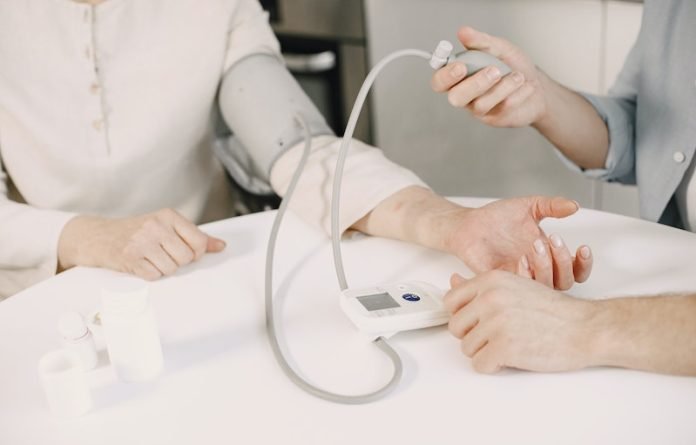
The prevalence of high blood pressure and obesity continues to increase globally, despite the targeted efforts to promote weight loss, increase physical activity, and decrease sedentary time in the general population.
A recent scientific statement from the American Heart Association suggests that arterial stiffness may be a new risk factor for high blood pressure.
Arterial stiffness refers to the decreased elasticity or flexibility of the walls of arteries, which can make it harder for blood to flow through them.
Arteries are the blood vessels that carry oxygen and nutrients from the heart to the rest of the body.
When they become stiff, they cannot expand and contract as easily in response to changes in blood flow, which can lead to increased blood pressure and strain on the heart.
Arterial stiffness is a normal part of aging, but it can also be caused or exacerbated by other factors such as high blood pressure, obesity, smoking, and diabetes.
Among middle-aged and older adults, arterial stiffness is a strong predictor of heart disease events and all-cause death.
However, limited data and repeated measures of arterial stiffness in a fairly healthy growing young population have consigned arterial stiffness to an intermediate marker of heart disease and death that occurs in middle age.
Recent studies have shown arterial stiffness as a novel risk factor for hypertension, overweight/obesity, insulin resistance, and type 2 diabetes in both adolescents and middle-aged adults.
Risk factors for higher arterial stiffness in adolescents include maternal smoking habits, early life smoking patterns of adolescents, high salt intake, genetic inheritance, obesity, and elevated blood pressure originating in childhood.
Arterial stiffening in adolescence is a subtle but potent risk factor for high blood pressure and metabolic alteration that can initiate a cascade of biological events leading to disease formation, such as type 2 diabetes mellitus and premature organ damage.
Therefore, it is crucial for clinicians, public health experts, and policymakers to focus on ways to treat, reduce, and possibly reverse arterial stiffness, particularly from adolescence.
An arterial stiffness intervention in adolescence may decrease the incidence of hypertension and metabolic diseases in later life.
However, further studies are needed to fully understand the clinical utility of arterial stiffness as a risk factor for early vascular and metabolic diseases in pediatrics.
There are several ways to prevent or reduce arterial stiffness, including:
Regular exercise: Exercise is one of the most effective ways to prevent and reduce arterial stiffness. Aim for at least 30 minutes of moderate-intensity exercise most days of the week.
Maintaining a healthy weight: Being overweight or obese increases the risk of arterial stiffness. Maintaining a healthy weight through a balanced diet and regular exercise can help reduce this risk.
Avoiding smoking: Smoking is a major risk factor for arterial stiffness. Quitting smoking or avoiding exposure to secondhand smoke can help reduce this risk.
Eating a healthy diet: A diet that is rich in fruits, vegetables, whole grains, lean proteins, and healthy fats can help reduce the risk of arterial stiffness and other cardiovascular diseases.
Managing stress: Chronic stress can contribute to arterial stiffness. Finding ways to manage stress, such as through meditation, yoga, or other relaxation techniques, can help reduce this risk.
Treating underlying health conditions: High blood pressure, high cholesterol, and diabetes can all contribute to arterial stiffness. Managing these conditions through lifestyle changes and/or medication can help reduce this risk.
Getting enough sleep: Chronic sleep deprivation can contribute to arterial stiffness. Aim for 7-8 hours of sleep each night to help reduce this risk.
If you care about blood pressure, please read studies about a common snack that may lead to high blood pressure, and scientists find the cause of nighttime high blood pressure.
For more information about blood pressure, please see recent studies that common meds for pain relief may harm blood pressure, and results showing this olive oil could reduce blood pressure in healthy people.
The study was conducted by Andrew Agbaje et al and published in the Journal of Hypertension.
Copyright © 2023 Knowridge Science Report. All rights reserved.



